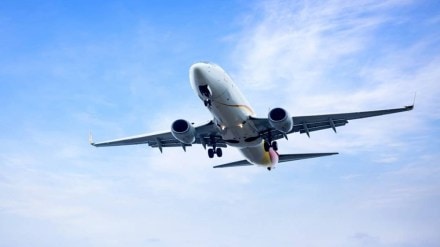The Centre will soon release a draft policy on Sustainable Aviation Fuel (SAF) for industry consultation, Union Civil Aviation Minister Ram Mohan Naidu said on Thursday.
“What we need right now is a strong and robust policy. I can happily say that the ministry is working on the SAF policy, and we would be engaging with the necessary stakeholders. We would very soon be launching the SAF policy soon,” Naidu said.
SAF refers to renewable or waste-derived aviation fuel that meets sustainability criteria.
The minister urged private players to participate in SAF production alongside oil companies. Globally, the demand for SAF is projected at 183 million tonnes by 2040.
The minister stressed that all industry players will have a say before the policy is officially finalized.
India aims to achieve 1% SAF blending in jet fuel by 2027, 2% by 2028, and 5% by 2030. The fuel can be used as a drop-in substitute in Aviation Turbine Fuel (ATF), which powers aircraft.
India’s aviation market, currently the fifth-largest globally, is projected to become the third-largest by 2030, positioning the country as a potential global leader in SAF production. Domestic carriers have already placed orders for over 1,700 aircraft, reflecting rapid market growth.
Highlighting India’s potential, Naidu noted that the country has over 750 million tonnes of available biomass and nearly 213 million tonnes of surplus agricultural residue.
He added that SAF production could increase farmers’ incomes by 10–15 %, reduce crude oil import bills by $5–7 billion annually, and generate over 1 million green jobs across the SAF value chain.
A report by the Federation of Indian Chambers of Commerce & Industry (FICCI) and KPMG released on Thursday stated that India has the raw materials to scale SAF production, including over 680 million tonnes of agricultural residue, 3.4 million tonnes of used cooking oil, and ethanol capacity exceeding 1,800 crore litres.
SAF can reduce lifecycle emissions by up to 80 per cent, making it the most immediate and scalable lever for decarbonizing aviation.
To further promote sustainability, Airbus India chief Jurgen Westermeier suggested integrating corporate spending on airlines’ voluntary SAF programs under the government’s Corporate Social Responsibility (CSR) framework.
Under the Companies Act, certain profitable entities must allocate at least 2% of their annual profit to CSR activities. Westermeier highlighted that voluntary corporate SAF programs represent a direct and measurable investment in climate change mitigation.
